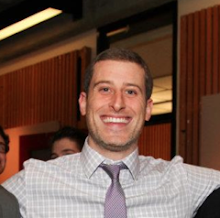INEQUALITY AND DEATH.
I guess this goes into the unsurprising category, but a new study shows that the risk of premature death plummets as you wander up the educational ladder. To make a meta-point, I post on these sorts of socio-health studies frequently for a reason: We tend to think of inequality in terms of some people having more stuff than other people. That's true, to an extent. But the poor in our society are also sicker, in more everyday pain, and have a greater chance of dying young. We're comfortable with inequality of stuff, but are we really very comfortable ignoring such gross inequality of pain, of illness, and of death? That's not to suggest that we'll ever have a society where everyone feels the same amount of pain, but it is to argue that the poor are not just different because they have less money, but because their lives are substantially worse, and worse in ways that better social policy could help alleviate.
Take the ten minutes to read the above mentioned 'new study' covered in the Washington Post. The findings are depressing but they do provide valuable support for focusing more of our efforts on reestablishing improved education as a primary objective. Expanding access to higher education by reducing costs to students is not only a moral issue, although that should be reason enough. It is also a means of alleviating financial burdens on the government. Studies (I'll see if I can find sources) show that the more someone is educated the less likely they are to require state assistance programs like welfare. They are also less likely to commit crimes which lead to taxpayer-covered court fees, public defendants, prison costs, etc. These are just two examples, but there are a million ways that expanding access to and improving education improves our society and there is something for everyone - from the bleeding heart liberal to the fiscal conservative who doesn't want to pay for someone else's free ride.

1 comment:
I loved this post.
Have a nice day
Post a Comment